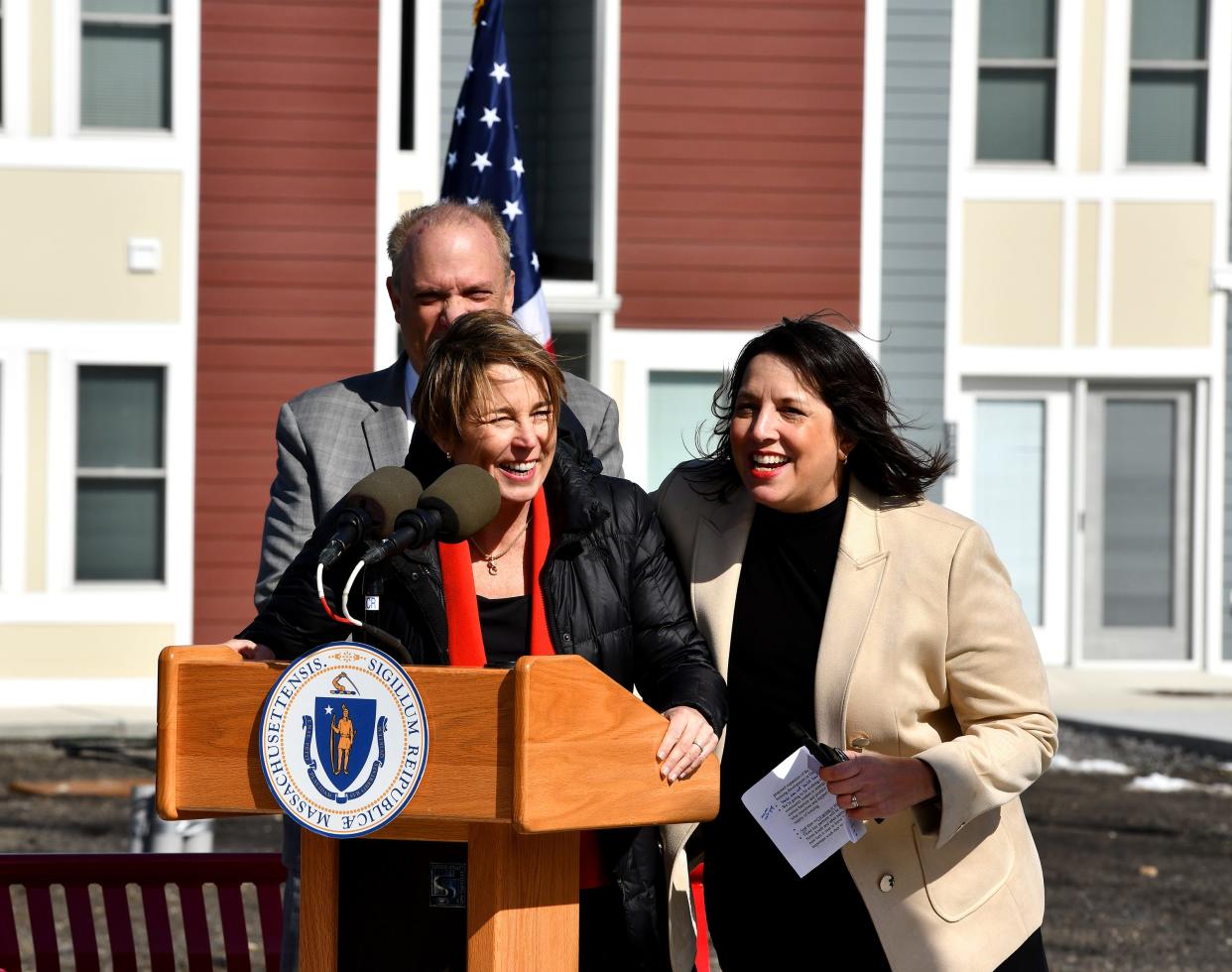Guest column: State women's caucus strong into 48th year

The Nineteenth Amendment, granting women the right to vote and hold office, was ratified in 1920. Just three years later, Massachusetts elected the first two women to the Legislature. A century later, 234 women have served in the Massachusetts General Court – compared to over 20,000 men.
Today, women make up 31% of the Massachusetts Legislature, and the 62 women who serve are all members of the Massachusetts Caucus of Women Legislators. Since our 1975 founding, our membership has grown in size and diversity, and our areas of focus have expanded – and we have maintained a consistent thread of support among members.
While still a minority of the Legislature, our members are a force to be reckoned with. They hold a variety of leadership titles and serve as leaders on policies ranging from energy to health care. Women are in an unprecedented five of the six constitutional offices, including Gov. Maura Healey and Lt. Gov. Kim Driscoll.
We are honored to be co-chairing the Women’s Caucus for the 2023-24 legislative session. Supported by a 12-member board of directors, the caucus aims to harness the power of its members and advance issues that impact women.
The caucus’s strategic priorities for this session include elevating women’s economic opportunity and eliminating barriers, addressing racial and gender disparities in health care, and empowering women in government. Legislatively, the caucus is focusing on five priorities that span these important areas.
Under the economic topic, the caucus is supporting two bills. Reps. Brandy Fluker Oakley and Josh Cutler and Sen. Patricia Jehlen filed An Act Relative to Salary RangeTransparency, which would have Massachusetts join several states in requiring employers to disclose the salary range when advertising a position. Research has found that salary range transparency in the hiring process is one of the best tools to help close the gender wage gap.
An Act Relative to a Livable Wage for Human Service Workers, filed by Rep. Kay Khan and Sen. Cindy Friedman, addresses disparities between the rate of pay for human services workers employed directly by the state and those employed by agencies with state contracts. Human services workers are more likely to have lower median wages and lower household incomes than workers in other industries.
To address racial and gender disparities in health care, Reps. Christine Barber and Jay Livingstone and Sen. Jehlen have filed an Act to Increase Access to Disposable Menstrual Products in Prisons, Homeless Shelters, and Public Schools. This bill requires all schools, prisons and homeless shelters to provide free access to menstrual products, which are a basic hygiene need and should be accessible to all.
An Act Relative to Postpartum Depression Screening,filed by Rep. Carole Fiola and Sen. Friedman, also aims to address health disparities. Postpartum depression is vastly underdiagnosed, partly because women are not being screened enough. This bill would require MassHealth to provide coverage for postpartum depression screenings by pediatricians for 12 months. Women often do not come forward with their symptoms, so having a pediatric physician who is trained to spot them can be critical.
Empowering women in government has long been a priority for the caucus, and we support An Act Supporting Parents Running for Public Office,filed by Reps. Joan Meschino and Mike Connolly and Sen. Jehlen. Currently, child care costs incurred during campaign events and activities are considered personal expenses and therefore not eligible for reimbursement. This bill would allow state and local candidates to use their campaign funds to pay for campaign-related child care expenses. Doing so would eliminate a major barrier and advance equitable political representation throughout the commonwealth.
Bipartisan and bicameral in nature, the caucus is a unique entity on Beacon Hill, bringing together all the women who serve. The caucus’ membership spans generations, geography, backgrounds, cultures and political views. That diversity is what keeps the caucus strong. We come together on issues that impact all women, using our members' lived experiences to ensure that the generations of women to come have expanded opportunities.
We encourage you to connect with the caucus, support our priorities and consider how you can get involved in your community. With all of us working together, we can continue to make strides toward true equality.
Sen. Joan B. Lovely, D-Salem, and Rep. Hannah Kane, D-Shrewsbury, are co-chairs of the Massachusetts Caucus of Women Legislators.
This article originally appeared on Telegram & Gazette: Joan Lovely Hannah Kane on Massachusetts women's legislative caucus

